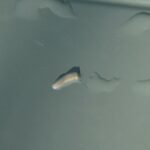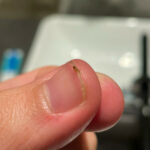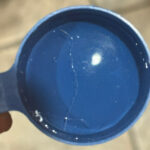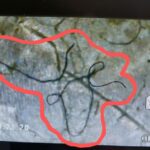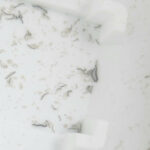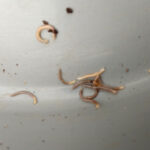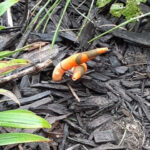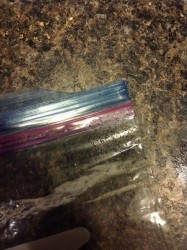
A reader wrote to us about a brown worm on his patio that was crawling toward a leaky water pipe. The reader was quite taken by the worm, and said “it was amazing!” The worm is about four inches (10 centimeters) long, and it had “titticles that parted.” While we find the word “titticles” to be excellent, not least because of is sexually confused connotations, we presume our reader meant tentacles. What could this brown worm with tentacles on the patio have been?
Unfortunately, no picture was submitted along with our reader’s question, which would have been quite helpful in this instance so that we could confirm whether the creature did in fact have tentacles. If it did, this means that he was probably finding a slug (and therefore, of course, not a worm). Most slugs have tentacles on their heads that are commonly mistaken for antennae. On top of the tentacles are light-sensitive spots, which function as extremely primitive eyes. Like earthworms, slugs are prone to desiccation, so those that live on land must stay in moist environments. It is therefore not surprising that the slug our reader saw (if it was a slug) was heading toward a leaky pipe.
The word “slug” is a fairly vague word that essentially refers to any gastropod without a shell. (Gastropods with shells are snails.) Generally, the word “slug” refers specifically to terrestrial gastropods without shells, although lots of shell-less gastropods live in aquatic environment as well. As for what kind of slug our reader might have found, it is impossible to say without a picture and more information. (It would be helpful to know in what part of the world our reader lives, for instance.) Moreover, tens of thousands of species make up the Gastropoda class, so identifying any given kind is quite difficult.
Of course, this entire answer hinges on whether we interpreted “titticles” correctly, but we don’t know what else this could mean but “tentacles,” and moreover the creature in question was found in circumstances befitting of a slug. So, if our reader is so inclined, we recommend that he research slugs a bit more, and perhaps he will decipher the precise species he found with a little diligence.
All About Worms is always free, always reader-supported. Your tips via CashApp, Venmo, or Paypal are appreciated! Receipts will come from ISIPP Publishing.



